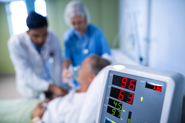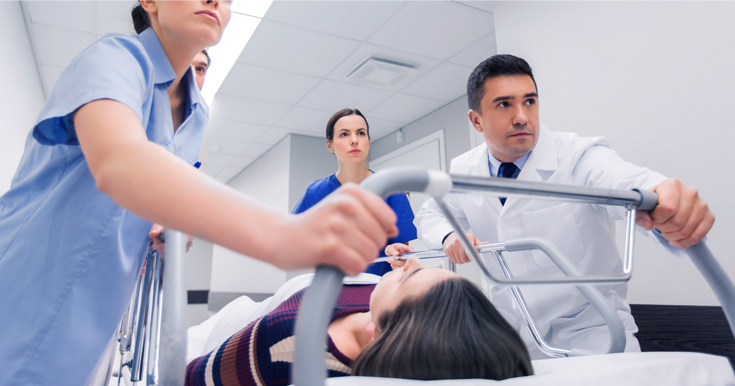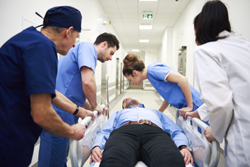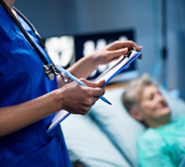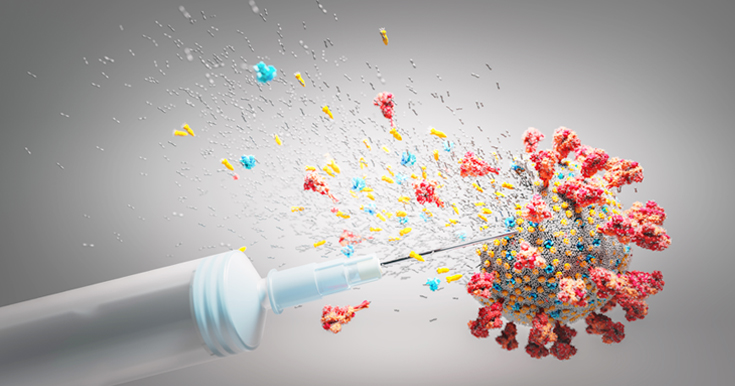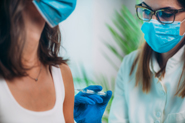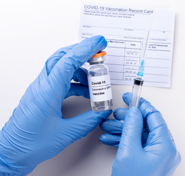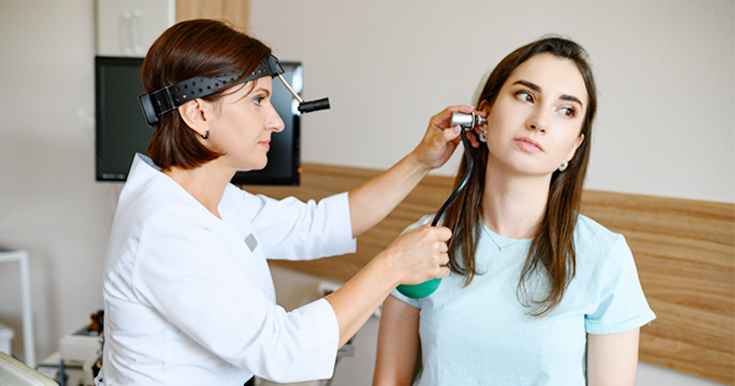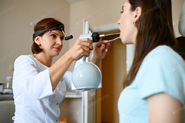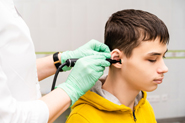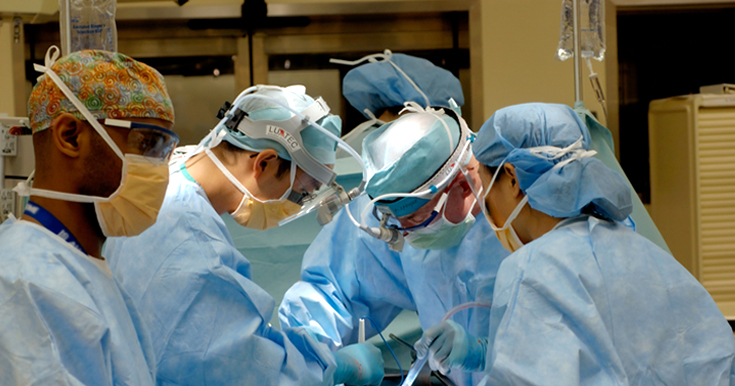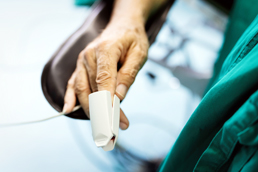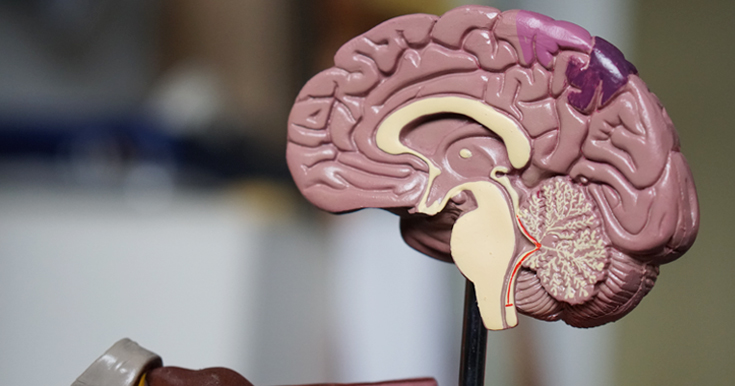How to Choose the Best Heart Hospital in Kolkata
When it comes to the selection of cardiac hospitals, many people have varied opinions. Sometimes, the opinions are valuable, but the other times it adds up the confusion.
If you are looking for the top heart hospital in Kolkata and you are reading this, then you have come to the right place. We have collated some pointers that will help you make the best selection of cardiac hospitals in Kolkata.
5 Points To Choose The Top Cardiac Hospital
Whenever a heart patient is admitted to a cardiac hospital, the patient and the family often consider factors like experienced doctors, facilities, and physical and emotional support. But are these enough to narrow down the best cardiac hospitals?
We will see these and some other factors in the following details:
1 – Team
Cardiac issues are not to be ignored. You always seek and consult a well-experienced and specialised doctor who will understand your ailment and ensure the best treatment for you.
A good hospital is a combined effort of doctors, nurses, and other healthcare and supporting staff. They assure you that you are in good hands.
2 – Position
As said earlier, people give many recommendations about the best cardiac hospitals. Word-of-mouth constitutes the reputation of a heart hospital. But apart from people’s opinions, do a little research on the prestigious awards and recognitions given to the hospital by notable medical bodies.
The top heart hospital in Kolkata embodies skills, recognition, best treatment, and a good experience for the patients and their families.
3 – Top-Notch Technology
It is a differentiating factor for any hospital. The best cardiac hospital pays a considerable amount of time and energy on the latest technologies available for cardiac treatment.
Apart from the treatment, look for hospitals employing faster technology to ease documentation and hassle-free medical procedures.
4 – State-Of-The-Art Cath Lab
The best cardiac hospital uses enhanced technology and infrastructure. Visual imaging tests are essential constituents for diagnosing cardiac issues. Hence, a hospital with a well-establish lab incorporating up-to-date technologies and safety is the best among the rest.
Moreover, no one likes delays in medical reports. Ensure that the labs are well-equipped to diagnose and report at the earliest time.
5 – Cardiac OT
Last but not least is the operation theatre of the cardiac hospital. For an outsider, finding the details about the cardiac OT in a hospital might be difficult. In such cases, share your concerns with your doctor. He/She will address your queries and guide you through the OT procedures.
Conclusion
The top heart hospital takes care of its cardiac patients in the nicest possible way. A reputed hospital is the one with accurate treatment infused with immaculate care and advice.
The best practices of the hospital are reflected in how it attends to its patients. A hospital is deemed well if the patients are content with medical and emotional treatment.
Let’s not ignore the red flags of your cardiac health. Consult the best and experienced doctors to seek their advice and expertise, visit the top heart hospital in Kolkata – https://www.ilshospitals.com/.
Know the Five Steps of Emergency Care
We live in a world of uncertainty and prone to sudden ailments, accidents, or injury. It is at this time when we need emergency services. Emergency care is an essential part of our healthcare system. The patients in emergency care get immediate treatments compared to other patients. In an Emergency Department, there is a specific team of physicians, nurses, and healthcare professionals to provide urgent care to the patients. There are five necessary steps of Emergency Care:
1 – Triage
The first step involves sorting by understanding the severity of the patient’s condition. After the patient’s arrival, an assigned nurse will collect the medical history and perform the necessary examinations, like checking the pressure, pulse rate, and relating to the symptoms, if required. After the initial medical examination, the nurse will assign a priority level like Resuscitation, Emergency, Urgent, Semi-urgent, and Non-urgent, for the patient.
Only one member can accompany the patient to the emergency care department. In emergency care, the patients get the treatment based on their emergency.
2 – Registration
Registration is necessary for the patients in emergency care. A patient’s visit to emergency care may be due to various unfortunate events. Registration will help record the details of the patient. It will be useful for both the patient and also the hospital to have the document. With registration, the hospital authorities can get consent to start on with the treatment/surgery.
Sometimes, severe patients are taken directly for surgery or similar emergency treatment. It will also enable the surgeon/physician to decide on the best treatment for the patient. The specialists who have access to the patient’s room will carry on with their registration process in a serious scenario.
3 – Treatment
After the registration process, the treatment of the emergency care patients begins. A medical practitioner or an attending physician do the minor treatments of the patient. Based on the patient’s condition, he/she gets fluids or medications as recommended with the help of an intravenous line. Other tests like blood-test, urine-test, ECG, X-Ray follow accordingly.
Some test takes longer time to showcase the results, during the time of the stay, the emergency care department makes sure the patients are comfortable and under constant care. Only two attendants are allowed at a time in the patient’s room.
4 – Re-evaluation
The next step starts after the test results of the patients are received. It will decide the patient’s condition if any further treatment is required. At this stage, the physician can also contact the patient’s doctor for any supplementary information. The patient should inform the physician to know about any additional pain or discomfort felt by the patient.
5 – Discharge
The last step is patients discharge. A patient is discharged from the hospital if everything is stable in his/her medical reports. Emergency care must keep the patients healthy when under their observation. They are home-instructions; after discharge from the emergency care, a patient should follow them religiously. After their release from the emergency department, every patient should follow-up with their doctors regarding their health status.
Conclusion
Most emergency hospitals follow these well-organized steps of emergency care. Whenever in need, search for the best emergency hospital in Kolkata. With the knowledge of systematic emergency care rules, you can help those in need and save lives. It is always advisable to understand the processes involved in emergency care for one’s good. If you are in search of the best emergency hospital in Kolkata, then https://www.ilshospitals.com/ should be on your priority list.
Learn About the Covid Vaccination Process in Kolkata
The people of the country have been suffering from Covid 19 pandemic for over a year. Finally, there is some good news to overcome this Pandemic situation. The vaccination process for the Covid 19 pandemics has started all over the country.
Kolkata was one of the severely hit cities in India. People have faced a difficult situation in this pandemic. Finally, we can see a ray of hope for the people of Kolkata as the vaccination has started all over the country. The public will get the vaccine in phases.
The Vaccination Process
Phase 1
In the first phase, vaccination will be for frontline workers and other health workers. By the end of the phase 1 vaccination period, the allocation was more than seven lakh frontline workers.
Phase 2
It has focused on the police, armed forces, and disaster management volunteers.
Phase 3
Individuals above 50 years and under 50 with commodities will be eligible for the vaccine.
Know the Vaccines
Two covid vaccines Covishield and, Covaxin got the permit from the governing health authorities. These two vaccines have undergone rigorous trials. Plus, with numerous phases of trials and tests for safety and immunogenicity. The government of Kolkata has started giving the vaccine to the people. have listed some of the government and private hospitals where the vaccination will be available.
In Kolkata, 15 government hospitals and ten private hospitals will provide the vaccination service. According to the reports, Covishield and Covaxin have a ceiling price set for Rs 250 per dose at private facilities. The Union Health Minister has stated that he will make vaccination available free of charge at government hospitals.
What to Do To Get The Vaccine?
After vaccinating frontline workers and the armed forces, as well as the other volunteers, the government has started giving the vaccine to senior citizens above 50 years of age. To get a vaccine, everyone needs to register in the CoWIN app for covid vaccine registration.
The CoWIN app is not available on the play store. You can download it from the official app site or via the AaroygaSetu app, which has the CoWIN app linked with it. Registration has started from March 1 onwards. You can register from 9 am to 3 pm every day.
Steps for Registration For Vaccination
- Open AaroygaSetu app or CoWIN app.
- Enter your mobile number and then enter the OTP received.
- In the AaroygaSetu app, click on the CoWIN app. It will redirect you to the page, then tap on the vaccination tab. Now a registration page will pop up, and you have to fill in all the details.
- People above 45 have to carry a medical certificate during the time of appointment.
- Then, you need to book an appointment and provide the necessary details. You will get a list of vaccination centres near your location, and you can choose one from your convenience.
- If you want to reschedule your appointment date, you can do that on the app.
Conclusion
Health workers in Kolkata are working very hard on their process of vaccinating people. Let us hope that everyone in the country gets their vaccination done as soon as possible. Kolkata government has also promised to make vaccination free of charge. Let’s hope for the best. For further information on Covid Vaccine and to get vaccinated, you can visit https://www.ilshospitals.com/.
Visiting an ENT Specialist During COVID-19
The COVID-19 pandemic not only disrupted our daily activities but also questioned our visit to the hospitals
and clinic. An apparent fear encapsulated our minds and rendered us helpless at times.
Apart from the COVID warriors, the medical professionals in the stream of ENT, gynaecology, ophthalmology,
orthopedy, etc., had to face the doubts of taking up patients. For patients, consulting even for ear pain or
nose bleed became an arduous task because of COVID fear.
But the Ministry of Health in India, took specific steps to ensure the smooth functioning of the medical
activities.
In this article, we will see how the ENT specialists in Kolkata, in compliance with the government rule, devised a protective environment for patients to get consulted during COVID-19 times.
Protocols Designed for Visiting An ENT Specialist
ENT is a high-risk area, prone to the spread of COVID-19 infection among the patients and the doctors. The
following protocols or SOPs have been set up by the government for the ENT specialists and the patients to
get better treatment and avoid the COVID-19 virus.
Appointment
- Telecommunication or online consultation should always be preferred between the doctor and the patient
to avoid physical interaction. Even after the surgery, patients should be advised to take a follow-up through
online consultation. - Only one patient should be allowed in the examination room.
- Patients with appointments should be preferred over walk-in patients.
Entry
- Ensure the patient and the ENT specialist is wearing masks, hand gloves, and maintaining social distancing.
- Use sanitisers before entering.
Screening
- Patients are screened using thermal, thermal guns to reduce the exposure to the medical staff.
- Patients with symptoms of COVID-19 are screened in a separate COVID-19 Screening Clinic to ensure the
safety of other ENT patients. - Personnels screening the patients have to wear a PPE kit.
- All the patients and their caretakers must wear a tripled layer mask and a gown.
Precautions Within ENT OPD Room
- ENT OPD room must be well-ventilated.
- The ENT specialists must wear a Level I PPE kit that includes an N95 mask, gloves, gown, and face shield.
- For unavoidable Nasal Endoscopy, doctors and nurses must wear Level II PPE kit that includes an N95 mask,
gloves, cover-all gown, and goggles. Generally, this is to avoid any risk from the aerosol generation during
endoscopies. - Patients with COVID-19 symptoms should be treated in separate wards. Only after the COVID-19 negative
report, they should be shifted to the ENT ward. - Only one care-taker of the patient should be allowed in the ward. The care-taker should also be screened
before entering. - Operation and ENT instruments must be sterilised as per the standard protocol.
- Ward should be cleaned and disinfected regularly.
- A distance of two meters between the patients’ bed is compulsory.
- Belongings of the patients must be kept to a minimum.
- All the furniture in the ward must be kept to a minimum and cleaned regularly.
- Visitors should not be allowed.
- A separate ward should be marked for the tracheostomised patients or the patients with a high potential
of aerosol generation.
Conclusion
The above points are the significant protocols required for ENT consultation. ENT symptoms involve ear pain, nose bleed, sore throat, snoring, hearing loss, etc. The respiratory organs are more prone to the COVID-19 virus. Thus, ENT becomes a crucial branch to follow the safety protocols during such a pandemic.
For more information about ENT specialists in Kolkata, safety procedures, and treatment, visit,
https://www.ilshospitals.com/.
Post-Cardiac Surgery Complications – What All Should Be Avoided After A Heart Surgery
Surgeries, of any nature, are complicated and require utmost care and precision. Especially, pre- and post-heart surgeries, everybody needs several weeks to heal itself. The post-care after surgery or ailment is equally valuable and should be a slow & progressive process. The gravity of post-cardiac surgery care must not be overlooked for faster recovery.
Cardiac surgery differs from general surgery, but general surgery hospitals might tell you about what to be avoided after heart surgery. Many general surgeons in Kolkata will guide you through post-cardiac surgery care.
Interventional cardiology is an advanced branch of cardiology that deals with non-invasive techniques to evaluate the functions of the heart and detect abnormalities. Some of the most common interventional cardiology procedures are as follows:
- Coronary catheterization
- Angioplasty and stenting
- Percutaneous Valve Repair
- Balloon Angioplasty
- Atherectomy
Keeping this in mind, we have compiled the complications and preventions of post-surgery conditions that will help you enjoy a healthy life.
Post-Cardiac Surgery Complications
Cardiac surgery is usually done if there is a blocked artery to the heart. As much as it is a matter of care before proceeding with the surgery, it is imperative to be vigilant after the surgery.
Following is the list of complications that might arise after the cardiac surgery-
1 – Chest Infection
After the surgery and anaesthesia, there is a possibility of chest infection in the patient. Depending on the severity, antibiotics and painkillers are used to subdue the infection.
2 – Heart Attack or Stroke
Generally, this may happen if you have a history of cardiac ailments and have undergone surgery. Post-surgery strokes can impact the recovery and will require extra care.
3 – Kidney Failure
In rare cases, the kidney stops functioning post-surgery. In most cases, kidney failure is temporary and is resolved by dialysis.
4 – Blood Clots
Post-surgery, blood clots may form in the body if the patient has a history of obesity, chain smoking, or immobility. Usually, the clots start from the legs and move to the lungs resulting in serious problems.
5 – Post-operative Bleeding
Cardiac surgery involves a lot of incisions and suturing. Sometimes, the bleeding continues after suturing, and fluctuations are observed in the blood pressure. Surgeons take necessary measures to normalize the condition of the patient.
6 – Other
Other complications include irregular heartbeat, chest pain, delirium, difficulty in breathing, insomnia, nausea, poor appetite, constipation, sore throat, and fatigue. But they go away with time.
Post-Surgery Care
1 – Incision Healing
Cardiac surgery includes a lot of incisions and suturing. Thus, post-surgery, avoid direct contact of water with the incision to mitigate any infection on the incision site.
2 – Stop Smoking
While recovering from heart surgery, it is crucial to keep smoking at bay to avoid further complications in the heart and lungs.
3 – Exercising
Any general surgeons in Kolkata will prescribe light exercise or climbing the stairs after cardiac surgery. But at the same time, faster recovery needs enough rest and sleep. Avoid over-exercising and over-sleeping.
4 – Mental Health
Post-surgery, the stress in mind means stress on the heart. Involve yourself in small activities and meditation to avoid stress, depression, anxiety, and anger while recovering. Living happily post-surgery expedites the recovery process.
5 – Eating Habits
Avoid eating oily and fried food. Eat healthy food or consult dieticians in the general surgery hospitals to enquire about post-surgery diet plans. Loss of appetite is common post-surgery but keeping a healthy diet plan balances your hunger.
At ILS Hospitals, we are well-equipped to administer pre-cardiac and post-cardiac surgery care. With the best surgeons’ team, we provide all the treatment and care needed to the patient after cardiac surgery.
Whether it be general surgery or Interventional cardiology like Angioplasty or Valvuloplasty, you need experienced and top cardiologists & surgeons. Even here, the post-surgery aftercare is imperative to recover to your daily routines. We at ILS Hospitals can assist you with clinical cardiology or even general surgery.
If you wish to know more about interventional and clinical cardiology, or other medical treatments in the hospitals, call ILS Care, +91 90514 60000 or visit https://www.ilshospitals.com/
How to Reduce Drying Skin and Hair During Winters?
Dry skin and hair during winters is a common problem we are all aware of. The low humidity indoors and outdoors doesn’t let our skin retain sufficient moisture, and in turn, it starts cracking. Dandruff is another primary concern and contributes to lowering our confidence. Fortunately, there are many cost-effective ways in which you can take good care of your skin during the chill season effortlessly without splurging money on expensive products.
Homemade Moisturizing Mask and Lotion
There is no need to spend a lot of money on moisturizing products because everything you need is already present in your kitchen. Coconut, being an excellent moisturizing agent, is a cure for both dry skin and hair. Honey and lemon mixed to make a perfect peel mask for dry skins. An avocado mask will also work as a hydrating item and will leave your skin soft and glowing. As you can get these products at home and there are no chemicals involved, you don’t have to worry about the side effects.
Using Humidifiers
Humidifiers are the perfect way to maintain a fair amount of moisture in the air. It regulates the moisture when the weather is drying. Keeping the cool air setting on is probably for the best.
Scrubbing
Even when it is winter, you need to bathe regularly while exfoliating your skin gently.
Dry skin mostly composes of dead cells and it is best to remove them. Try using natural, homemade scrubs as chemical-based scrubs might cause extra dryness.
Avoiding Harsh Cleansers
Face Washes and body washes with fragrance are generally hard cleansers. The chemicals present in such products make your skin drier and result in cracking. Use soaps and cleansers which are sulfate-free.
Use Oils and Water
Your dry skin and hair are indicative of less hydration in your body. To prevent that, use more oils like olive oil, coconut oil, almond oil, etc. These have multi-benefits and could be used in both cooking and applying on the skin and hair to provide nutrition.
Drink as much water as you can. It’s difficult because your body fools you during the cold weather, and as you don’t sweat much, you don’t feel like drinking as much water. But the outer environment has less moisture content, and so you should double your usual water intake.
Consumption of Dry Fruits
Dry fruits are great warming agents. They also contain vitamins and minerals that provide nutrition to your body. As dry fruits like almonds and walnuts provide strength to hair and deliver the necessary proteins, you should consume them daily to prevent dryness.
Choice of Laundry and Shampoo Cleaners
Use the laundry detergents, which are fragrance-free as they would not cause unnecessary irritation to your skin, transforming into cracking and scaling. As for shampoo, use sulfate-free ones. Reduce the use of heat devices on hair and provide proper conditioning. Include oiling in your haircare routine.
Taking care of skin and hair during winters is a challenging task. You need to maintain a balanced diet and incorporate vitamin-rich food ingredients in your meals to provide sufficient nutrients, warmth, and moisture to your body. Excessive cracking of skin due to dryness can sometimes impose the dangers of severe skin diseases, and you would want to consult a doctor in such circumstances. Dermatology is the branch of medicine dealing with the skin, nails, hair and its diseases and at ILS Hospitals, our team provides treatment for a variety of skin conditions. Visit www.ilshospitals.com for a consultation with the best dermatology clinic. Meanwhile, don’t forget to include the measures mentioned above and products in your daily lifestyle to reduce dryness from skin and hair.
To know more, visit www.ilshospitals.com or call ILS Care +91 90514 60000.
How To Prevent Heart Diseases
We often overhear about a seemingly healthy person passing away from an unanticipated heart stroke. one doesn’t know what’s going on in their body and in what ways it can contribute to the illness unknowingly. It’s extremely essential to start taking care of your health. Heart diseases have become a significant cause of deaths in India, and there is a crying need for spreading awareness about it. We have listed down a few measures to prevent heart diseases and lead a healthy life.
Maintaining A Healthy Weight
Obesity poses an influential risk of heart disease as it manipulates your triglyceride and cholesterol levels. Diabetic people are a majority in the population of those who suffer from heart illnesses. Try adopting a healthy lifestyle by cutting down sugar and eating the right amount of greens. It is important to not let obesity come your way as it makes way for numerous other diseases.
Controlling Blood Pressure
Any individual, irrespective of age, should get their blood pressure checked regularly, if not very frequently, at least once in a year. It’s the fluctuating blood pressure that triggers most of the heart problems. If you are already suffering from heart illness, you should be in constant touch with the top heart hospital near you and keep their contact handy.
Exercise Regularly
Going for a run every morning or partaking in any kind of physical activity for an hour a day improves the blood circulation in your body, and your arteries function well. In this way, blood pressure can be maintained at an optimum level, and hence, the risk of heart diseases is reduced.
Eat Healthy And A Balanced Diet
Many people work out strenuously but don’t give up on the junk food they consume. Further, this cancels out the benefits they are supposed to acquire through the exercises. Reduce your portions and include more and more veggies in your diet. Beans, legumes, fish, meat, low-fat dairy products, fruits, etc. will help you against diabetes and lessen your chances of catching any kind of heart disease too.
Get Enough Sleep
When you don’t stick to your proper seven-hour sleeping schedule, your body drains out, and you keep feeling exhausted all the time. It contributes to high blood pressure, diabetes, and obesity. If you have irregular sleep conditions, contact the best heart hospitals in Kolkata, India, and for that matter, any heart hospital located in major cities.
Stress Management
Stress is a trigger for heart attacks and strokes as it increases blood pressure in the most common situations. In today’s scenario, stress has become one of the main reasons for heart-related issues in all age groups. It is important to cope with stress in the healthiest ways like listening to calm music, exercising, meditating, practising yoga, etc.
Quit Alcohol Consumption And Smoking
Alcohol affects your body negatively in many ways. It makes you gain weight, increases blood pressure, and contributes to organ failure. Similarly, smoking causes the accumulation of harmful substances in the arteries and restricts blood flow. It is also one of the leading factors for coronary heart diseases, strokes, and attacks.
The cardiologists at ILS Hospitals handle multiple cardiological subspecialties. These include, but not limited to the followings:
Cardiac arrhythmia – Persistent irregular heartbeat, which is either too fast or too slow. It is of 2 types, more than 100 beats per minute are called tachycardia and below 60 beats per minute is called bradycardia.
Coronary artery disease, or ischemic heart disease – it includes diseases like stable angina, myocardial infarction, unstable angina, and sudden cardiac death.
Cardiac arrest – a sudden failure of heart contraction that leads to the stoppage in the effective blood flow.
Hypertension – Persistent high blood pressure in the arteries reaching the heart. A prolonged condition can lead to coronary artery disease, vision loss, chronic kidney disease, stroke, heart failure.
Congenital heart defect – Presence of a defective heart since the time of the birth. The consequences can vary from none to life-threatening.
Keeping a close watch on your heart and getting checked regularly is a need of the hour. If not discovered at an early stage, the heart-related problems could become a fatal and substantial risk to your life. Find out the top heart hospitals near you and visit them once in a while as a precautionary measure. If you live in a rural area, get yourself equipped with contacts of big hospitals so that in the time of need, you won’t have to wander cluelessly and know what to do right away. For example, if you live somewhere in the northeastern part, locate the best heart hospitals in Kolkata, India, as it is the nearest metro city and contact www.ilshospitals.com in case of any emergency.
Stress Management in the Times of Covid19
Even though the COVID-19 crisis is a physical health crisis at first but might grow into a major mental health crisis. Good mental health is key to a smooth lifestyle and we, as individuals, should stay on top of our conscience to keep sane.
The pandemic has induced fear and anxiety amongst people due to the exclusivity of the disease. The common emotion that has enveloped people has been stress, fear, and a unified overwhelming feeling. Social distancing has people feeling isolated and induced anxiety about bigger things in life. What we, as a society, can do is stick to our hygiene-first actions to reduce the spread of COVID-19. But while you are at it, ss per the World Health Organisation here are a few ways of coping with stress in a healthy way:
Pause. Breathe. Reflect.
Take some slow breaths: in through your nose, then slowly breathe out. Slow breathing is one of the best ways to lower stress because it signals to your brain to relax your body. Notice how you are feeling and what you are thinking, without judgment. Instead of responding or reacting to those thoughts or feelings, note them, and then let them go.

Connect with others
Talking to people you trust can help. Keep in regular contact with people close to you. Tell them how you are feeling and share any concerns.
Keep to a healthy routine Do:
- Get up and go to bed at similar times every day.
- Keep up with personal hygiene.
- Eat healthy meals at regular times.
- Exercise regularly. Just doing 3-4 minutes of light intensity physical movement, such as walking or stretching, will help.
- Allocate time for working and time for resting.
- Make time for doing the things you enjoy.
- Take regular breaks from on-screen activities.
Don’t:
Don’t use alcohol and drugs as a way of dealing with fear, anxiety, boredom and social isolation..

Be kind to yourself and others
Don’t expect too much of yourself on difficult days. Accept that some days you may be more productive than others. Try to reduce how much you watch, read or listen to news that makes you feel anxious or distressed. Seek the latest information from trusted sources at specific times of the day. Helping others can be good for you too. If you are able to, offer support to people in your community who may need it.
Reach out for help if you need it
Don’t hesitate to seek professional help if you think you need it. A good place to start is your local health worker. Help-lines can also be a source of support.
Psychiatry is the medical domain that is dedicated to the diagnosis, prevention, and treatment of mental disorders of people who are otherwise disease-free. It evaluated patients who suffer from persistent and severe mood swings, unpredictable behaviour and actions, PTSD, panic attack, frightening hallucinations, self-harming, and hearing “voices.” it also includes patients suffering from long-term sadness, hopelessness, or anxiousness, up to a point when it begins to disrupt the everyday life. At ILS Hospitals, our expert psychiatrists are here to assist anyone in the times of a crisis.
To know more, visit www.ilshospitals.com or call ILS Care +91 90514 60000.
Understanding Brain Tumour – Signs, Symptoms and Myths
The human body is controlled by one of the most complex and largest networks of nerves – the brain. Understanding the functioning of the brain is vital to decoding brain tumours. It can be an overwhelming experience, courtesy: the sea of information available. In this piece, we have simplified the definition, listed down the myths and stated the facts.
To begin with, a brain tumour is a mass or growth of unnatural cells in any part of the brain.
Tumours can be broadly categorised into two – noncancerous (benign) tumours and cancerous (malignant) tumours. The cancerous tumours are more complex and can vary in size and implications. In rare cases, the sensitivity and balance of the nerves are compromised resulting in headaches, blindness, facial paralysis, etc. Owing to technology and advancements in medical science, brain tumours can be treated through surgeries and radiation.
Signs & Symptoms of Brain Tumour
The signs and symptoms of brain tumours are dependent on the location of the tumour. This mainly happens because the position determines the complexity of the tumours – some might directly affect the brain tissues while some may affect the peripheral nervous system.
Since different parts of the brain control different parts of the body, the symptoms also differ.
However, some of the common brain tumour symptoms are:
- Seizures
- Speech or hearing impairment
- Vision issues
- Issues in balancing, walking due to numbness in the arms and legs
- Problems with memory, personality changes
- Weakness, nausea and vomiting
To be noted: The symptoms can result from various conditions and don’t necessarily mean you have a tumour. It is strictly recommended to consult with a doctor to assess and process.
Common Myths & Facts
Myth: All non-cancerous (benign) brain tumours are harmless
Understanding the difference between non-malignant and malignant brain tumours can be difficult depending on its grade and stage. What is important to note is some non-malignant tumours can be as serious as the malignant ones. This occurs when the tumour is located in an inaccessible location, such as the brain stem. Thus, even non-cancerous tumours may cause harm if it goes untreated.

Myth: The signs and symptoms of all brain tumours are identical.
The most common and untrue myth that circles around brain tumours is this one – similar symptoms. Different people have different journeys to diagnosis – some may have no symptoms that indicate it is a tumour while others may have grave symptoms.
Myth: A non-malignant brain tumour does not require chemotherapy.
There are a host of factors that are to consider when it comes to chemotherapy. For example, any person’s age and overall condition, and the location and size of the tumour play an important role in determining if chemo is required. In most non-cancerous cases, it is usually not required, but exceptions are always there.
Myth: Once a patient finishes their treatment plan, life goes back to ‘normal’.
For some patients, there comes a day when active treatment ends. That day can bring with it numerous mixed feelings, relief, happiness, anxiety but also uncertainty. The end of treatment does not mean the end of the experience of having a brain tumour and the person may need to adapt to a “new normal” depending on long-term effects the person may have from treatment.
Myth: Brain tumours are rare and do not affect young people.
The number of brain tumours cases in children under the age of 20 has now surpassed leukaemia. Tumours are the third leading cause of cancer deaths in young adults between the age of 20-39. Secondary brain tumors are common than primary brain tumors – cancer begins elsewhere and spreads to the brain.
Myth: Brain Tumours are caused by cell phones and microwaves

Physiologically speaking, this myth makes zero sense as the studies have proved that radio frequency radiation (RFR) affects the skin first and a long way before reaching the brain. Calcium is the best absorber of radiation and thus, the skull protects the brain from the radiation to enter.
Neurosurgery is the medical branch that addresses the conditions related to the brain, spinal cord, and nervous system through surgical procedures. ILS Hospitals is all set with expert neurosurgeons to offer extensive treatment along with Surgical Management of Pain that interferes with the everyday life of the patient. To know more, visit www.ilshospitals.com
8 Ways to Keep Your Spine Healthy
The backbone of your movement, of your ability to function and sleep, is literally your spine. Almost all movements originate from the spine and without a healthy spine, it is difficult to even conduct daily tasks like sitting, standing or walking without discomfort and pain. As people age, they often complain about back pain from either sitting too long or too much activity or just old age.
Spinal diseases are highly common, especially when people start ageing. Owing to the flexibility of the cervical spine, it is common for people to damage that area over a period of time. Some of the common cervical spine diseases include degenerative disc disease, cervical stenosis, and cervical disc herniation. This occurs when the discs within the vertebrae begin to disintegrate, owing to damage to the fibres deteriorating with time. Other injuries include spina bifida, scoliosis, lumbar spinal stenosis, spondylitis and even tumours spreading and growing between your spinal cord.
Often these diseases present themselves as common symptoms like lower back pain, nausea, radiating pain in your limbs, stiffness, bladder or bowel dysfunction and more. Make sure you take these symptoms seriously and get professional help before it gets worse.
While most of these require medical attention, some spinal issues can be corrected with a change in lifestyle habits and can even be prevented by taking proper care of your spine. Taking care of your spine can be a part of your lifestyle. Certain activities and habits can help keep your spine healthy and happy, making your life much easier. Some of the ways to take proper care of your spine are:
- Stay Active: Maintaining an active lifestyle can help reduce the chances of experiencing lower back pain. Core strengthening and stretching can help the body be more flexible and move easily. Overall, an active life helps keep your back healthy.
- Lift Right: Many people experience severe back pain after they try to lift something heavy. It is important to be in the right posture and use your legs and knees to lift rather than your spine. Do not try and lift an extra-heavy object alone. Instead, get help and lift together.

- Stretch Regularly: To stay flexible and promote your spinal health, you should be stretching your neck and back every day. It helps maintain joint functions, improves your range of motion as well as reduces your risk of a back injury.
- Get Proper Rest: A good night’s sleep can do wonders for your body and especially your spine. Doctors recommend sleeping on your side as sleeping on the stomach puts pressure on the spine. A supportive mattress and pillow alignment also helps with the spine.
- Change your Posture: Often, people experience back pain because of the wrong posture, especially sitting. It increases the load on your spinal discs and wrong posture can cause inflammation, pain and more. It is vital to follow the natural curves of the spine and reevaluate your posture.
- Stay Hydrated: Staying hydrated maintains soft tissue elasticity and fluidity in joints. Loss of fluids causes discs to become brittle and eventually might lead to them slipping. It is also a cause for sciatica. Staying hydrated not only affects the spine, but your entire health.
- Maintain a Healthy Weight: Maintaining a healthy weight helps to take off pressure from the spine. Overweight or obese people put extra pressure on their spine and the muscles around them. A healthy diet and an active lifestyle helps avoid the lower back pain that comes with weight.

- Work Smart: Most adults spend hours in front of some electronic gadget, be it a laptop, mobile phone or television. The right kind of chair and seating position can help improve your back pain and lend functionality. Taking periodic breaks to walk around also helps the muscles to relax.
Despite your best efforts for a healthy lifestyle, sometimes preventive methods are not enough to alleviate back pain. Back pain can indicate more serious problems that might even lead to spine surgery. Seeking medical care is important in such situations to avoid further damage. ILS Hospitals, one of the leading healthcare facilities in Kolkata has an excellent neurological department that deals with spinal injuries and other issues. Visit www.ilshospitals.com to know more or call ILS Care, +91 90514 60000.












